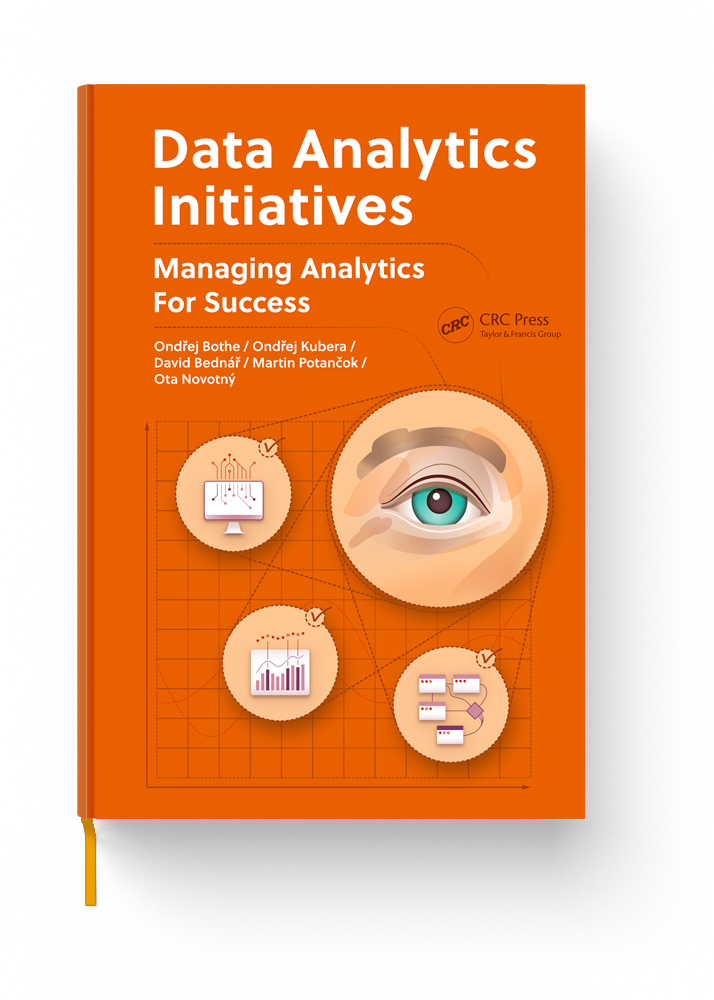Ikhlaq Sidhu Gives His Thoughts On the Key to Successful Data Analytics Projects in Foreword for New Book

Recently, SCET Founding Director, Ikhlaq Sidhu, wrote the foreword for the new book Data Analytics Initiatives: Managing Analytics For Success authored by some of SCET’s long-time collaborators at the Prague University of Economics and Business, including Ota Novotný, Martin Potančok, Ondřej Bothe, Ondřej Kubera and David Bednář. The new book aims to support a wide range of professionals including managers working to identify the risks and challenges of launching analytics projects, product managers and delivery experts working to understand timelines of successful projects, and data professionals to help them understand project categorization, risk and complexity of data analytics work.
At the heart of the book is the question of why many data science projects fail and how to create a regime that is successful and sustainable at handling complex projects. The authors wonder why many data science projects still do not succeed even though there is an abundance of data science expertise out there, established methods for approaching project management, and rapidly evolving tools to assist experts in managing and analyzing projects. The authors propose that the main reasons why data science projects fail are that every data analytics project is very complex, unique, and it is challenging to coordinate between people with different expertises.
To help readers manage the complexity and uniqueness of data analytics projects, the authors propose a three-axis approach. By categorizing analytical initiatives, professionals can reflect on what they’ve learned from past projects, accurately define categories for each project to simplify complexity, and learn to critically analyze the crucial aspects of each project to understand its uniqueness.
In the foreword (re-printed below with the authors’ permission), Professor Sidhu reinforces the importance of seeing each data analytics project as complex and unique, and the idea that the right approach is to use modern tools and technology to be more experimental and innovative in the approach to working with each data analytics project:
It is my pleasure to have the opportunity to introduce this book via this foreword. For years at UC Berkeley, we have been fortunate to be able to contribute to courses that mix analytics, data science, design, and innovation processes resulting in a large-scale, holistic, data-related skill-base.
Ikhlaq Sidhu; Foreword, Data Analytics Initiatives: Managing Analytics For Success
A transition has occurred in the world. In the past, research and commercial projects in many areas have relied on deductive logic and a closed form of mathematics. With recent trends in computing, a growing volume of data, and analytics tools, we now have the ability to add inductive and empirical analysis to these projects. This trend dramatically increases our ability to learn, understand, and develop new types of results.
Analytics projects deliver the next-generation applications that transform businesses, generate value, and gain a competitive advantage. Analytics is becoming much more accessible to companies and business users. But, it is necessary to realize that the critical success factors for analytics projects are different from what we knew for classical software development projects. We can find that experiences are limited to our focus, and what could look like a new technology does not necessarily solve all challenges. This is mainly due to their overall complexity that is not connected with the analytical problems but with the overall analytics solution ecosystem.
While many books focus on data science itself, this book contributes to a very important need, which is the ability to manage these types of data-oriented projects. This book also takes the very effective approach of learning to focus on the problem definition, project categorization as well as examples of potential risks and failures on typical analytics projects first instead of focusing first on the technical tool. This problem/solution-driven approach is well known to be successful. In contrast, the alternative approach leads only to an ineffective process of technology looking for a problem.
Once again, congratulations to the authors (Ondřej Bothe, Ondřej Kubera, David Bednář, Martin Potančok and Ota Novotný) for going beyond the topics of ML, AI, and reporting, to fill these important project-oriented aspects of data science.
Cheers to the books’ authors on their work to identify these challenges for everyone working with data analytics projects and proposing solutions to help professionals work more efficiently and find more effective solutions.
